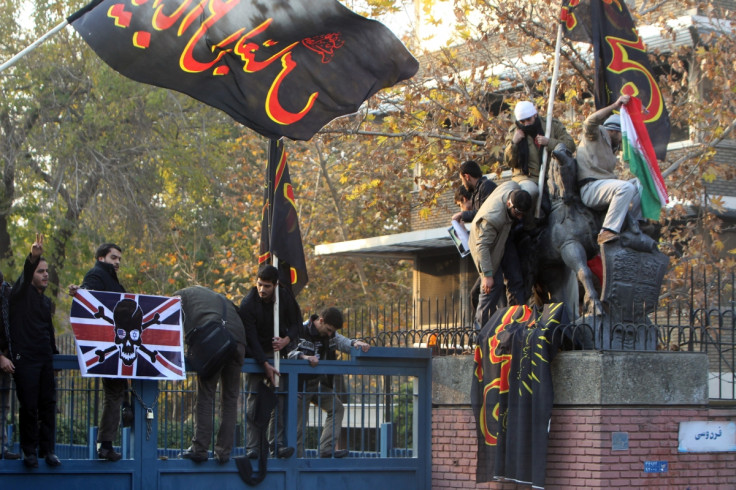William Hague: We Still Don't Like Iran but we Need Embassy in Tehran

William Hague has promised the UK government will not soften its policies towards Iran despite re-opening its embassy in Tehran.
The foreign secretary told MPs in the Commons that there were still deep concerns over Iran's sponsorship of terrorist organisations and its nuclear programme.
And he agreed with Labour's Douglas Alexander that the country had to decide whether it was to be a "stabilising or de-stabilising" force in the region.
While Hague's announcement that the embassy was to re-open after three years was overwhelmingly welcomed in the Commons without a voice of protest, concerns over Iran's behaviour were raised amid fears the move was hastened because of the crisis in Iraq.
In a written statement, the foreign secretary said the decision had been made now because the "circumstances are right", without once mentioning Iraq, only the continuing thaw in relations between the UK and Iran over the recent period.
"There has never been any doubt in my mind that we should have an embassy in Tehran if the circumstances allowed. Iran is an important country in a volatile region, and maintaining embassies around the world, even under difficult conditions, is a central pillar of the UK's global diplomatic approach," he said.
Until the Khatami government were undermined gratuitously by President Bush in his axis of evil speech, the Iranian government gave the British and American governments very good, positive and trusting co-operation in respect of the removal of the Taliban.
But no one doubts that the pressing circumstance that has given urgency to the move is the threat posed by Isis in Iraq and to its Iranian-backed government, and the UK's desperate need to find a stable, influential ally in the region as it teeters on the brink of sectarian destruction.
The old diplomatic standby that "my enemy's enemy is my friend" is again to the fore.
But while the move to bring Iran in from the cold has long been on the cards, there remain some significant fears about what the new relationship may mean.
Labour's former foreign secretary, Jack Straw, welcomed the development saying: "I hope this will lead to a new strategic approach to see Iran as much more of a partner than an adversary."
He pointed out Iran had previously been a friend to the West and had only become an enemy after former president George Bush's inclusion of the country in his infamous "axis of evil" speech post September 11.
He reminded MPs: "After 9/11, and until the Khatami government were undermined gratuitously by President Bush in his axis of evil speech, the Iranian government gave the British and American governments very good, positive and trusting co-operation in respect of the removal of the Taliban?"
Diplomatic relations with the country were finally severed in 2011 during former president Mahmoud Ahmadinejad's rule and after attacks on the British embassy and relations worsened over the country's apparent determination to pursue a nuclear weapons programme
However, relations between Tehran and both London and Washington have thawed since the election of moderate president Hassan Rouhani last year and continuing reassurances over Iran's nuclear programme.
But there are still significant concerns over Iran's promotion of Shia sectarianism, its continuing support for the Assad government in Syria and its backing for Hezbollah in Lebanon.
Some of the fears were raised in the Commons, with Tory Robert Halfon urging Hague not to "soften" policies towards Iran which sponsored terrorism against Israel and Kurdistan.
Hague insisted there would be no softening of policies and the government would continue to press Iran to: "cease its support to terrorist groups elsewhere in the Middle East."
Hague also agreed with Labour spokesman Douglas Alexander that Iran needed to become a stabilising rather than de-stabilising force in the region, and he pressed home the demands for continuing movements on its nuclear ambitions.
But, for the moment, may of those concerns appear to have been overshadowed by the urgent need to build some sort of anti-Isis alliance in the region and in a conflict the UK, for one, has absolutely no intention of being drawn into militarily.
© Copyright IBTimes 2025. All rights reserved.






















